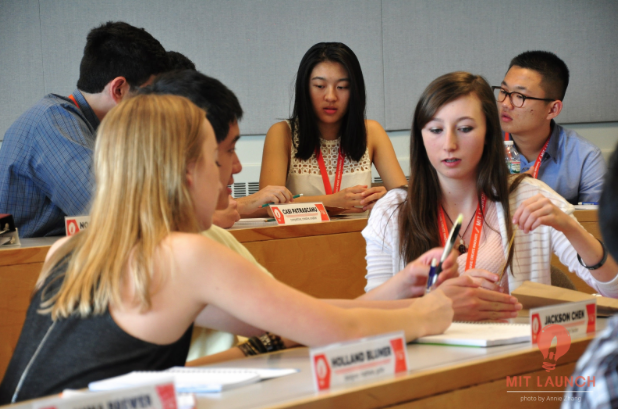
Aulet, who is also the Managing Director at the Martin Trust Center for MIT Entrepreneurship, firmly believes that entrepreneurship can be taught. With this philosophy in mind, he created a 24-step lean startup methodology called Disciplined Entrepreneurship. Using this fast-paced framework of entrepreneurship, Laurie Stach, Program Manager of High School Education at the Trust Center, created a summer program that aims to tap the potential of innovative high school students from across the globe.
MIT Launch is fully integrated with MIT and enables high school students to launch a company, by providing the resources needed to go from “idea” to “implementation.” It instills self-starter mentalities within students as well as tangible, practical business skills.
“I’ve wanted to be an entrepreneur since I was in elementary school,” said Stach to JSR. “But even after I had graduated from Harvard Business School, it was a huge challenge adjusting to the harsh realities of the real entrepreneurial world.
“High schools and even many universities tend to focus too much on finding the answer to a given, hypothetical problem in the world. However, the truth is that the real world is not nice enough to simply hand over the problems that need solving.”
Solving these often unspecified problems is the focus of MIT Launch. For a span of one month, students are required to explore unknown environments, gathering primary market research to identify a specific problem within society and developing a novel business plan to solve it.
True to Aulet’s lean startup framework, Launch emphasizes the concentration on needs versus wants and encourages quick failures followed by immediate rebuilding based on customer feedback. Adhering to the philosophy of “being a painkiller rather than a vitamin,” Launch companies are required to undergo rigorous initial research and development to focus directly on solutions that fill core problems and gaps in society.
“I’ve never been so excited or committed to a business model, especially because I’m not afraid to fail,” said Ethan Lee, Launch sophomore and co-founder of a music sharing platform called Auxcord that allows people to listen to music together by curating a live, collaborative stream with their friends or people with similar music interests.
Lee added, “In fact, failure is seen as a necessary measure for progress, and that really motivates me to not hold back.”
Auxcord is just one of many extraordinary concepts that are coming into fruition this summer at Launch. Nudge, a hyperlocal matchmaking platform, relieves the innate anxiety of approaching someone for the first time by allowing users to gauge the interests of others in the same event or location. Anchor uses QR codes and zone numbers planted at parking zones to allow people to efficiently find parking and pay for it through an app.
However, maybe the most important takeaway from this summer incubator is not the companies themselves, but the expansive, resourceful network of future leaders that the program initiates. Business leaders at Launch hail from 23 states and 13 countries, and the program’s 10 percent acceptance rate attests to the pedigree of the students as high school leaders.
For aspiring high school entrepreneurs, MIT Launch is a worthwhile summer experience that immerses its students in the processes of realizing an innovative dream. For more information about the program, the companies it’s created, and admissions for the summer of 2016, visit http://www.launchsummer.org/.

